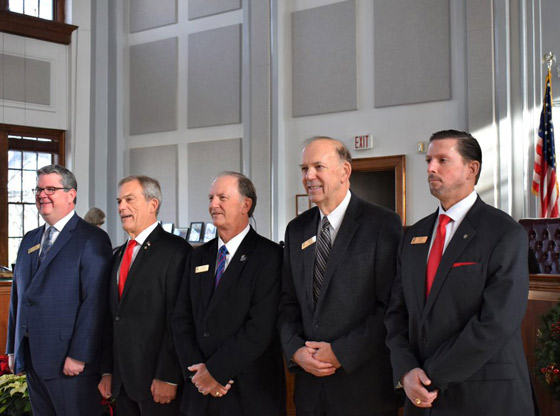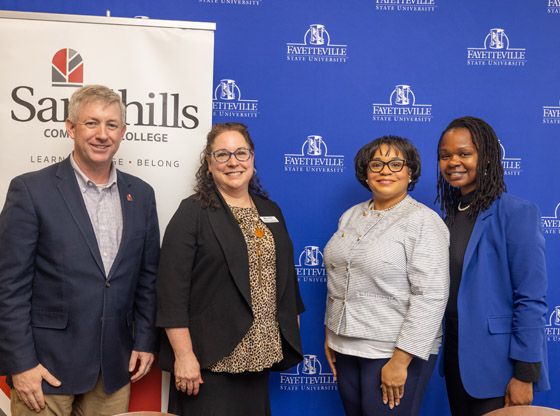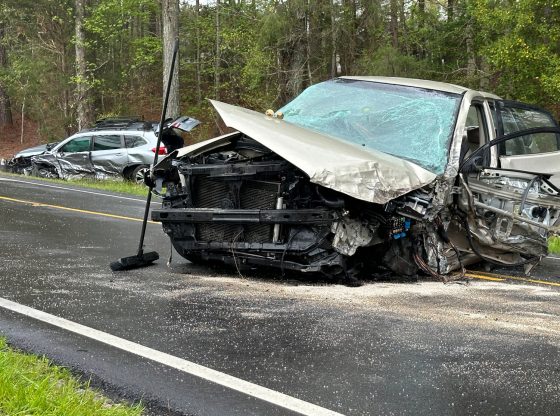Moore County Board of Commissioners reviewed the school board’s funding request for 2023-2024 at $38,258,500.
The school board’s estimated total budget is $182,384,786.
The county request included fixed cost increases, and Moore County Schools Superintendent Tim Locklair said 85% of that is salaries. The board of education calculated the fixed cost inflation rate at 6%. The presentation may be viewed here.
During the board of education presentation, Chair Robert Levy said he wanted the commissioners to tell legislators not to pass HB219.
Levy said the bill would give more funds to charter schools and take state and grant funds from district schools.
“If it passes, there will be a giant hole in our funding,” Levy said about HB 219 being a dark presence.
House Bill 219 states under 115C-218.105, state and local funds for a charter school:
29 (a) The State Board of Education shall allocate to each charter school: (1) An amount equal to the average per pupil allocation for average daily membership from the local school administrative unit allotments in which the charter school is located for each child attending the charter school the number of students actually enrolled in the school, up to the maximum authorized enrollment, except for the allocation for children with disabilities and for the allocation for children with limited English proficiency.
House Bill 219 may be viewed in full here.
Board of Education Vice Chair David Hensley said the cost for a Robbins Elementary School student per year was $13,859, a Pinehurst Elementary School student was $7,700, and an Aberdeen Elementary School student was $9,045.
To further clarify to issues with HB219, Levy sent an email to Sandhills Sentinel.
“The issue with 219 is that currently, Charters get a portion of only our county funding. 219 would give them a portion of our state, federal, and grant funding. If they get such funds directly, they do not have to share. This reduced our funding by millions of dollars without the transfer of any students. Unfortunately, many of our costs are fixed, e.g. maintenance and exceptional children (see below).
“The reality is that we might maintain our services, but the county and the taxpayers would probably have to appropriate more money to cover losses from 219. The result would be higher taxes and a misappropriation of funding where it is not necessarily needed. So … same children … less money, and we would have to cut services.
“See the money we would lose:
- Federal reimbursements (includes indirect costs)
- Fees for actual costs
- Tuition
- Sales tax refunds
- Gifts and grants (exception — federal grants restricted as to use)
- Federal appropriations made directly to LEAs
- Funds received for Pre-K programs
- Fund balance
- Supplemental taxes (these would be shared with all charter schools located within the tax district, as well as charter schools outside of the tax district if they enroll students who reside within the tax district where the taxes are levied),” Levy wrote in the email.
Board of Commissioner Chair Nick Picerno said the school board’s presentation was the most transparent after hearing 10 past presentations as a commissioner.
“Other boards always had something to hide,” Picerno said about the school board being honest, sharp, and hardworking.
At the May 16 commissioners’ meeting, the county manager will recommend the schools’ budget, and at the June 20 meeting, the commissioners will hold a public hearing.
In other matters at the meeting of the commissioners, following a quasi-judicial hearing, which had no speakers for opposition, commissioners passed Tough Stump Technologies’ request for a Special Use Permit to operate a security training facility at 2173 Vass-Carthage Road, between the intersection of Vass Carthage Road and Farm Life School Road and the intersection of Vass-Carthage Road and Joel Road.
Ben Brown and Jarret Heavenston own Tough Stump Technologies. The company will conduct a low-intensity training center focused on developing, training, and integrating unmanned systems, tactical communications, and situational awareness software. Students will be public safety, government, and defense personnel.
The company follows all Federal Aviation Administration 107 regulations covering flying drones. All pilots will be registered and certified, operate flights during daylight, and aircraft will be under 55 pounds.
According to Tough Stump Technologies, the drones are quieter than a leaf blower.
The company will construct one new building for a classroom and office space. There are two existing dwellings and accessory structures on the property to be used as props to simulate scenarios where students may operate unmanned vehicles inside these structures. No one will reside in any of the dwelling units.
During public hearings, commissioners passed a text amendment for the Unified Development Ordinance on freight terminals. The amendment identifies freight terminals as individual use, separate from warehouses and distribution centers, and follows the same setback standards as industrial uses.
A citizen concerned about a railroad freight terminal with daily traffic in Seven Lakes initiated the text amendment.
The commissioners will continue the freight terminal text amendment discussion at the May 16 meeting.
~Article and file photo by Sandhills Sentinel Journalist Stephanie M. Sellers. Contact her at [email protected]


















